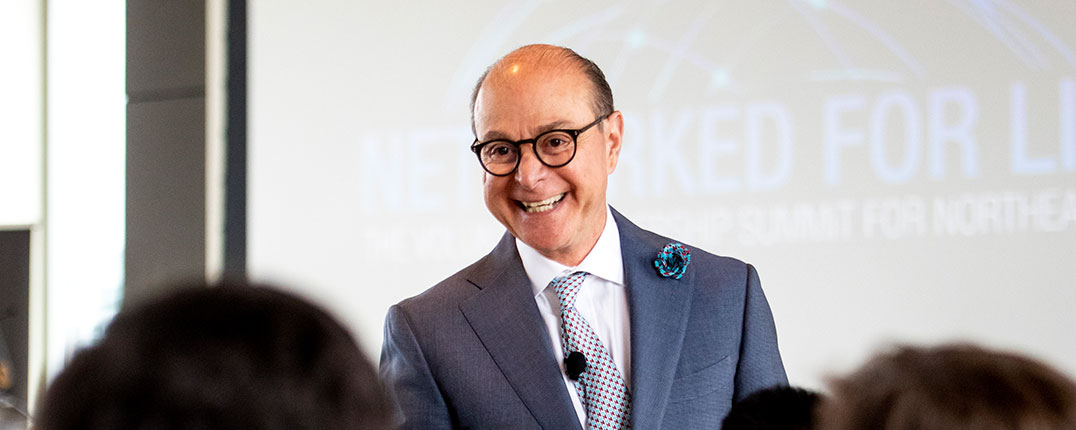Students, faculty colleagues, staff, and friends. Welcome to you all.
And thank you, Yoruba, for your remarks and for spending time with our community yesterday.
You remind us that the battle for civil rights has many frontiers.
Dr. King wrote, “Injustice anywhere is a threat to justice everywhere.” This is a powerful statement.
In recent weeks and months, we have witnessed profound injustices.
Tragic events have torn the fabric of our society.
From Ferguson to New York City, we have seen senseless killing. These events, fresh in our minds, sadden and anger us.
Over the long term, they force us to seek a better outcome.
As Dr. King taught us, “The arc of the universe is long, but it bends toward justice.”
Light always prevails over darkness.
Love always prevails over hate.
It is important to hold onto this hope in difficult times.
And, ultimately, through the hope we share with each other, we emerge stronger.
The triumph of Dr. King’s message is not a given.
This is where each one of us comes in.
We must be the ones who bend the arc of the universe toward justice.
And we are doing so, in many ways.
Northeastern is brilliant in its diversity.
We represent many races and beliefs.
We share a boundless devotion to the principles of equality and free expression.
We are not perfect. No institution is.
We have fault lines, discord and divergence.
It is in these differences that we can chart the course that bends the arc of the universe.
The key is to make these differences work for us.
Our diversity is not a zero-sum game. It is additive.
Our pluralism makes our university as a whole stronger.
Northeastern reaches its fullest potential when our differences are harnessed together to serve our community and our society.
And because of our history and unique character, when we bridge these differences, we do so in ways that are deeply relevant to the world.
For example:
This coming Monday, hundreds of Northeastern students will join with our neighbors, young and old, to participate in our MLK day of service.
Dr. King spoke eloquently of the need to serve others.
We honor his call by strengthening the bonds between our university and the communities that enrich us.
Let me focus on another shining example: The Civil Rights and Restorative Justice Project at our School of Law.
They have done bold and inspired work in pursuit of justice.
Under the leadership of Professor Margaret Burnham, they have worked tirelessly to repair the wrongs of history.
Just last month, they helped overturn the conviction of a 14 year-old boy who was put to death 70 years ago for a crime he did not commit.
What they did has brought closure to old wounds.
Professor Burnham is in Mississippi right now, continuing this important work.
The Associate Director of the Restorative Justice Project is with us today.
Rose, please stand up and be recognized. Thank you for what you and your colleagues do.
I call on all of us here to heed the message of Dr. King and the example of Professor Burnham and her colleagues.
Yes, many wounds remain in our society.
But steps like the ones I have mentioned move us toward healing and forgiveness.
They move us toward reconciliation.
They move us closer to Dr. King’s dream.
His vision is not only relevant to us here.
It is global.
It is universal.
The recent tragedies in Paris, Pakistan and elsewhere, show that hate and intolerance are not confined to any national boundary.
As we go about our work, let us use our talents for the betterment of society, and the benefit of humankind.
A university should not be a mere microcosm of society. We should aspire to more.
A university should be a model-a model of what society can be.
Let us lead by example.
And let the example of Dr. King lead us.
Through our collective efforts, we can bend the arc of the universe toward justice.
And when we do, the turbulence of our times will ultimately yield a better world.
Thank you.


